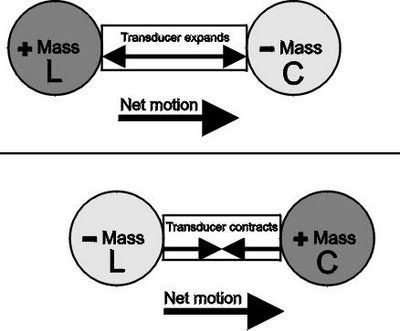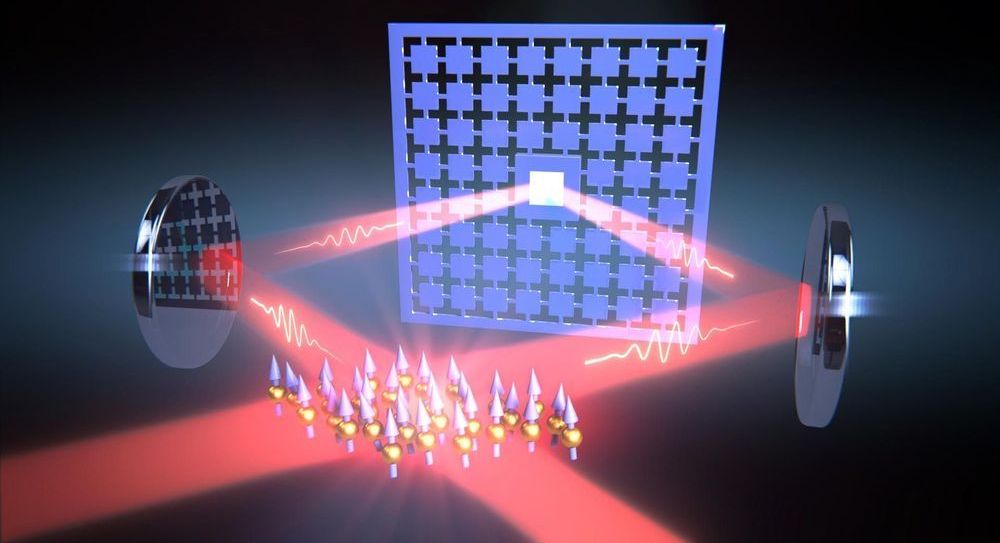Circa 1990 to current o.o
The Woodward effect, also referred to as a Mach effect, is part of a hypothesis proposed by James F. Woodward in 1990.[1] The hypothesis states that transient mass fluctuations arise in any object that absorbs internal energy while undergoing a proper acceleration. Harnessing this effect could generate a reactionless thrust, which Woodward and others claim to measure in various experiments.[2][3]
Hypothetically, the Woodward effect would allow for field propulsion spacecraft engines that would not have to expel matter. Such a proposed engine is sometimes called a Mach effect thruster (MET) or a Mach Effect Gravitation al Assist (MEGA) drive.[4][5] So far, experimental results have not strongly supported this hypothesis,[6] but experimental research on this effect, and its potential applications, continues.[7]


















